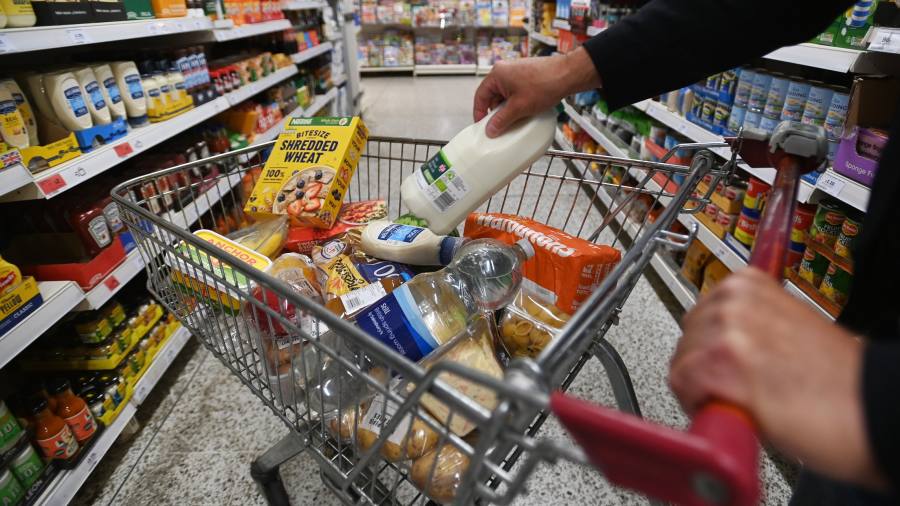Conservative MPs and retailers have hit out at UK government plans to encourage supermarkets to cap the price of food staples, in a fierce backlash.
Health secretary Steve Barclay said on Sunday that ministers were in talks with retailers about how to “address the very real concerns” many Britons harbour about food inflation and the cost of living, including the possibility of introducing voluntary price caps.
Barclay told the BBC that the government was “working constructively” with supermarkets.
However, Andrew Opie of the British Retail Consortium, which represents major supermarkets, said the plan “will not make a jot of difference” to high food prices, which are the result of soaring energy, transport and labour costs.
Accusing ministers of keeping food inflation high despite falling commodity prices by presiding over a “muddle” of new regulation, he said: “Rather than recreating 1970s-style price controls, the government should focus on cutting red tape.”
Ex-Tory leader Sir Iain Duncan Smith said he was “always pretty concerned when we start getting involved in the free markets”, and former frontbencher Sir John Redwood warned that any state intervention on price setting raised “competition law hazards”.
Earlier this month Mark Spencer, minister for food, farming and fisheries, explicitly ruled out asking retailers and producers to stop raising prices.
But in a sign that the Conservative party was split over the idea, Sir John Hayes, chair of the so-called Common Sense Group of MPs, said a price cap was a “really good move”, adding that if a voluntary system did not successfully lower prices, “the government will have to go further”.
The proposal was first reported by The Sunday Telegraph newspaper.
Opie said that supermarkets ran on slim margins and profits had already fallen in the past year, while many retailers have expanded affordable food ranges and locked prices on essential products.
The annual inflation rate for food and non-alcoholic drinks remains stubbornly high, at 19.1 per cent in April. Food has overtaken fuel as the single biggest driver of the inflation.
The Resolution Foundation think-tank calculates that annual food bills for the average family will be £1,000 higher than their pre-pandemic level by July, hitting poorer families harder because they spend a higher proportion of their budgets on food.
Alarm over the impact on struggling households has prompted ministers to host a flurry of meetings in the past month.
Officials described the government proposals for supermarkets to introduce a voluntary price cap on essential items such as bread and milk as being at the “drawing-board stage”.
Economists said it would be better to increase welfare benefits for the poorest households and rely on competition to bring down prices.
Julian Jessop, former chief economist at the free market Institute of Economic Affairs, said supermarkets might be willing to regard some basic items as loss leaders, but could cut corners on quality or raise prices on other items to compensate. They could also treat the cap as a floor once falling costs allowed, rather than cutting prices.
Labour described the proposals as “extraordinary”. Jonathan Ashworth, Labour’s shadow work and pensions secretary, told the BBC: “Rishi Sunak is now like a sort of latter-day Edward Heath with price controls.”
In the 1970s Heath, then prime minister, introduced price controls in a bid to curb inflation.
A government official said: “We recognise retailers operate on low margins. But we are acutely aware of the cost of living squeeze people feel. So we are talking to retailers about what can be done to keep prices as low as possible.”
Earlier this year the French government agreed a deal with major supermarkets under which retailers were asked to make their own choice about which food items to earmark for price freezes and reductions.
Stay connected with us on social media platform for instant update click here to join our Twitter, & Facebook
We are now on Telegram. Click here to join our channel (@TechiUpdate) and stay updated with the latest Technology headlines.
For all the latest World News Click Here

